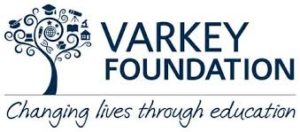Education Is The Antidote To Violence, Poverty And Corruption: Nobel Peace Prize Winner Juan Manuel Santos
Climate change is the biggest crisis the world faces right now and humans will perish if we don’t find solutions for it, warned former President of Colombia and the 2016 Nobel Peace Prize winner Juan Manuel Santos.
During his session ‘Changemaker for peace’ at the seventh annual Global Education & Skills Forum (GESF 2019), a Varkey Foundation initiative, held at The Atlantis, The Palm, Dubai, UAE, Santos said that the world’s governments must work together with private sector stakeholders to tackle the increasingly dire problems of global warming, plastic pollution and climate change.
Awarded the Nobel Peace Prize for his unrelenting efforts in bringing Colombia’s 50-year-long civil war to an end and resolving the conflict with the country’s FARC revolutionary forces, Santos is widely recognised as one of the world’s most influential leaders. He is credited with spearheading Columbia’s economic growth and poverty reduction, steering the country to its position as a regional leader. Under his leadership, Colombia’s education metric was enhanced nationwide and the wealth gap between its urban rich and rural poor narrowed significantly.
Following the end of the 50-year conflict in 2016, Colombia under Santos’ leadership started an ambitious reform programme – the National Development Plan of 2014-2018 – focused on three pillars: peace, equity and education.
“My government began an aggressive programme to increase the quality of education and we promoted access to higher education,” Santos said. “Teachers were given scholarships to study and enhance their skills further, both in Colombia and abroad. Today, Colombia ranks high on the PISA global scale that measures student performance. We have been progressive in furthering our education goals, but we still have a long way to go,” he added.
With the increasing quality of education, Colombia has been able to raise more of its people from poverty and low income into the middle class. “Women and young people, particularly, are driving change and this is very important for real progress and quality of life,” Santos said.
Colombia also took an alternative view to educational progress and development, compared to the rest of the world, he pointed out. “You have to understand that your definition of development is different from ours,” Santos said. “For most of the world, progress may mean building one more highway, a bigger house or car. For us, it is being allowed to maintain our culture.”
Colombia under Santos’ helm facilitated education opportunities for indigenous people, putting the responsibility for their education in their own hands. This led to its first indigenous university, located in the southwest of the country. The aim of such indigenous education is the preservation of native peoples by maintaining their culture and traditional practices.
Santos is recognised as one Latin America’s most transformative leader. Under his administration, Colombia saw growth in job creation, sustainable development, and ICT while reducing poverty by a great scale. Making the impossible possible, Santos described himself as a “dreamer”. But his methods have not always been the most popular.
Countering a remark that he left the presidential office in 2018 with one of the lowest poll popularity ratings, Santos said: “I have always done the right thing, and what is good for the country, not what is popular.” He pointed out that after achieving the United Nation’s Millennium Development Goals in 2015, Colombia became an early initiator and driver of the 17 UN Sustainable Development Goals, which aim to provide a good basic quality of life for every person on earth. The goals include eradication of poverty and hunger; ensuring health, wellbeing and quality education; clean water and sanitation; and climate action, among others.
Colombia pioneered the 2030 SDGs – being one of the two countries that proposed the SDG agenda within the context of the UN – and the Global Goals are also a powerful driver of the country’s National Development Plan. Santos highlighted Colombia’s focus on promoting the right causes and solutions, and praised its people’s engagement in public issues and poverty alleviation measures.
Coming back to education, Santos said Colombia’s long battle with sectarian violence, poverty and corruption could only be tackled with education. “Corruption breeds violence and the best antidote for corruption is education,” he said. “An educated population will reject violence. So let’s educate our children before they pick up a gun and start shooting up people.”
In this context, the sustainable development goal of ‘Quality education’ remains the most important one not only for Colombia but the whole world, he noted.









